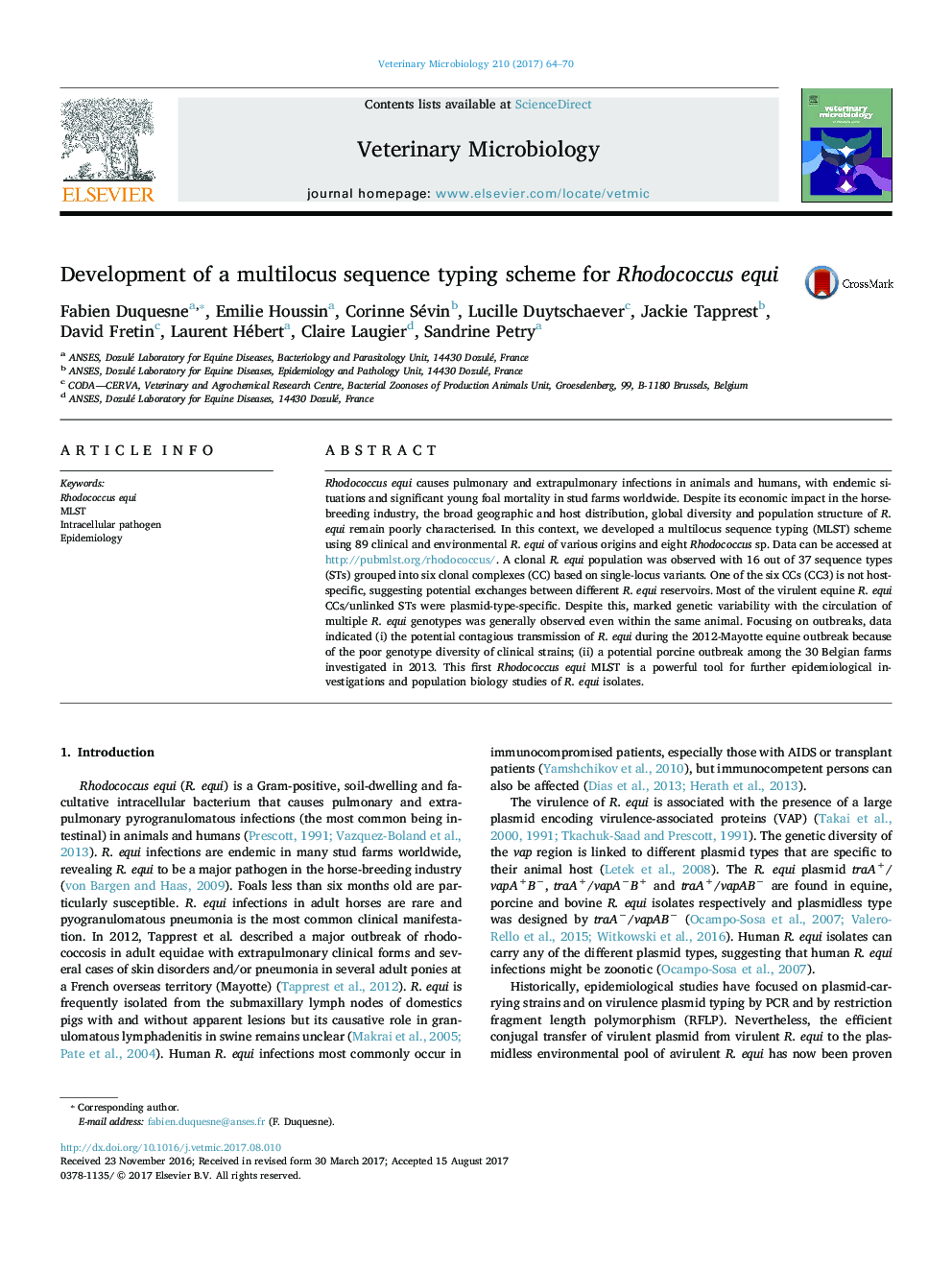| Article ID | Journal | Published Year | Pages | File Type |
|---|---|---|---|---|
| 5545078 | Veterinary Microbiology | 2017 | 7 Pages |
Rhodococcus equi causes pulmonary and extrapulmonary infections in animals and humans, with endemic situations and significant young foal mortality in stud farms worldwide. Despite its economic impact in the horse-breeding industry, the broad geographic and host distribution, global diversity and population structure of R. equi remain poorly characterised. In this context, we developed a multilocus sequence typing (MLST) scheme using 89 clinical and environmental R. equi of various origins and eight Rhodococcus sp. Data can be accessed at http://pubmlst.org/rhodococcus/. A clonal R. equi population was observed with 16 out of 37 sequence types (STs) grouped into six clonal complexes (CC) based on single-locus variants. One of the six CCs (CC3) is not host-specific, suggesting potential exchanges between different R. equi reservoirs. Most of the virulent equine R. equi CCs/unlinked STs were plasmid-type-specific. Despite this, marked genetic variability with the circulation of multiple R. equi genotypes was generally observed even within the same animal. Focusing on outbreaks, data indicated (i) the potential contagious transmission of R. equi during the 2012-Mayotte equine outbreak because of the poor genotype diversity of clinical strains; (ii) a potential porcine outbreak among the 30 Belgian farms investigated in 2013. This first Rhodococcus equi MLST is a powerful tool for further epidemiological investigations and population biology studies of R. equi isolates.
